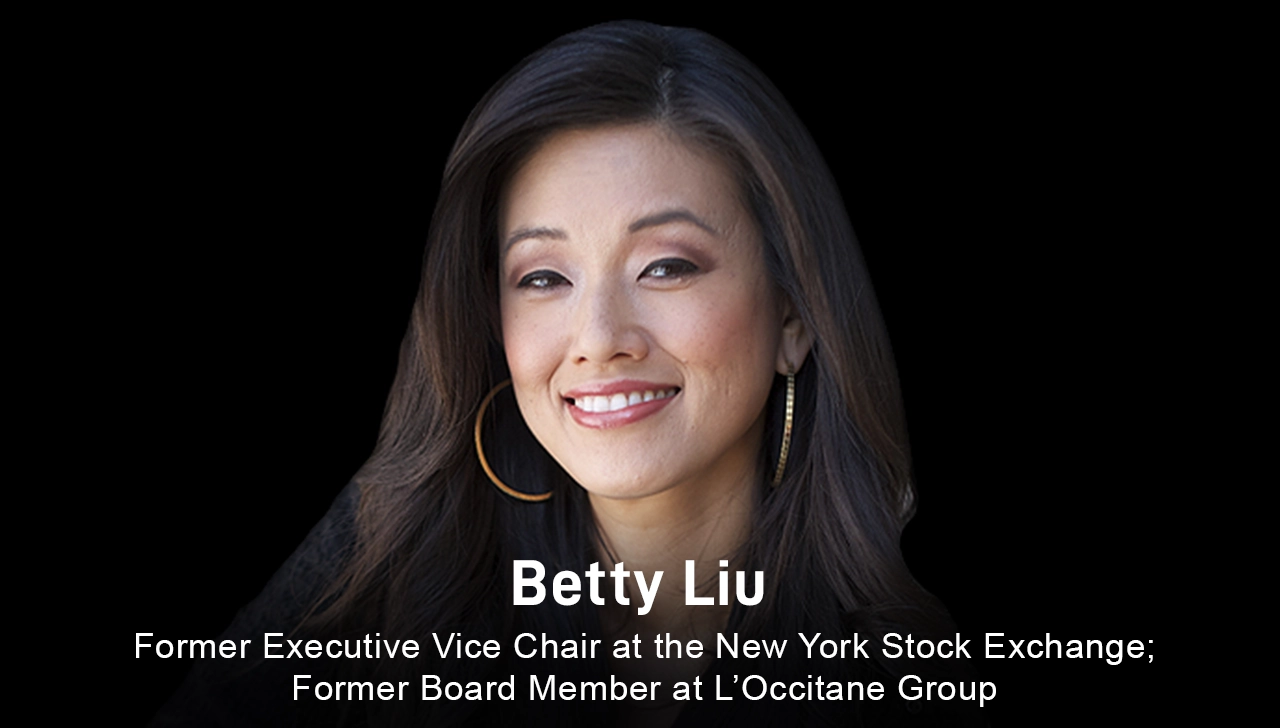ExCo Insights
Betty Liu’s Leadership Lessons | ExCo Insights
ExCo Insights
In this series, we explore some of the most important lessons and insights from our executive coaches and mentors.
Betty Liu, executive coach and mentor at The ExCo Group, former Executive Vice Chair of the New York Stock Exchange, and former board member of L’Occitane Group, shares her key leadership lessons, including learning to listen deeply, not letting your story blind you to opportunities, and the benefits of over-communicating.
Click here for more ExCo insights.
KEY LEADERSHIP LESSONS
One is to listen deeply, which is a leadership lesson that I feel like I keep learning over and over. Listening deeply means more than just hearing what people are saying. It also means listening to what people are not saying and listening to understand the why and the context around what they are saying.
One example that reminded me of the importance of listening was when I first started working at the New York Stock Exchange. I wanted to hear what our customers were thinking, and so I chose 25 CEOs from among our 2,200 listed companies, including small-cap, mid-cap, and large-cap companies, and I did a listening tour. One theme that came up time and again was that they were facing real talent shortages, including at the director level. They were having a really hard time finding quality people to join their boards.
“Listening deeply means more than just hearing what people are saying. It also means listening to what people are not saying.”
They said that if I could help them, it would be such a great service to them. And so we immediately established the NYSE Board Advisory Council—a platform that helped our listed companies find board directors. We launched it in just a few weeks, and it took off. The lesson is that if you listen to people, they will often tell you what they need. Real listening is about being present and hearing what the other person is saying before you even think about responding.
The second leadership lesson is similar to listening, but it’s about not letting your own stories get in the way. As leaders, we come in with very strong perspectives and strong opinions. But sometimes the stories that are behind those perspectives and opinions can prevent us from expanding our thinking and seeing opportunities.
When I was raising capital for Radiate, the education technology company I started, I had a business development leader on my team who was helping us find investors. He kept pitching me ideas about potential investors that I shot down, because I had stories about them that led me to assume that they would say no. I realized I was getting caught up in these stories, and I finally said that I was going to stop doing that, hear what my BD leader had to say, and go into those conversations with an open mind. And sure enough, one of the investors he approached, whom I was skeptical about, ended up writing one of our biggest checks. It really drove home this point that your own stories can block you from thinking outside the box.
WHEN I COACH CLIENTS, WE OFTEN TALK ABOUT…
One theme that comes up often is the importance of bringing people along on the journey. Very senior executives get to where they are because they’re really good at their jobs—they’re hard workers, they execute, and they have grit and resilience. And those skills are absolutely important to get you to that level, and they are rewarded.
But once you get to that level, then you need another set of skills to get you to the level beyond that. And that includes really engaging with your peers, the CEO, and the board. In essence, you need to start influencing as well as executing, and that’s an area where many executives start to stumble.
And so I will coach senior executives that over-communicating is better than under-communicating. Don’t leave a vacuum—speak with clarity and transparency. If you want to push through initiatives, it’s not going to be by brute force. It’s going to be by bringing people along and getting their buy-in. It’s not just about influencing, but also negotiating. So it’s a different set of skills that can be unfamiliar for a lot of executives.
The other area goes back to what I mentioned earlier—being aware of the dangers of entrenched thinking because of the stories that you are telling yourself. Often those stories come with “should,” as in, “It should be this way.” It’s very common among senior leaders because people who get to those positions have strong opinions and perspectives, and they’ve been very successful based on those perspectives.
But you get to a point where those strong opinions and perspectives can be limiting. As a coach, I help clients see other possibilities by gently challenging these assumptions. Often, we end up in a more expansive and energizing place, one that leads to fresh ideas and meaningful impact.
